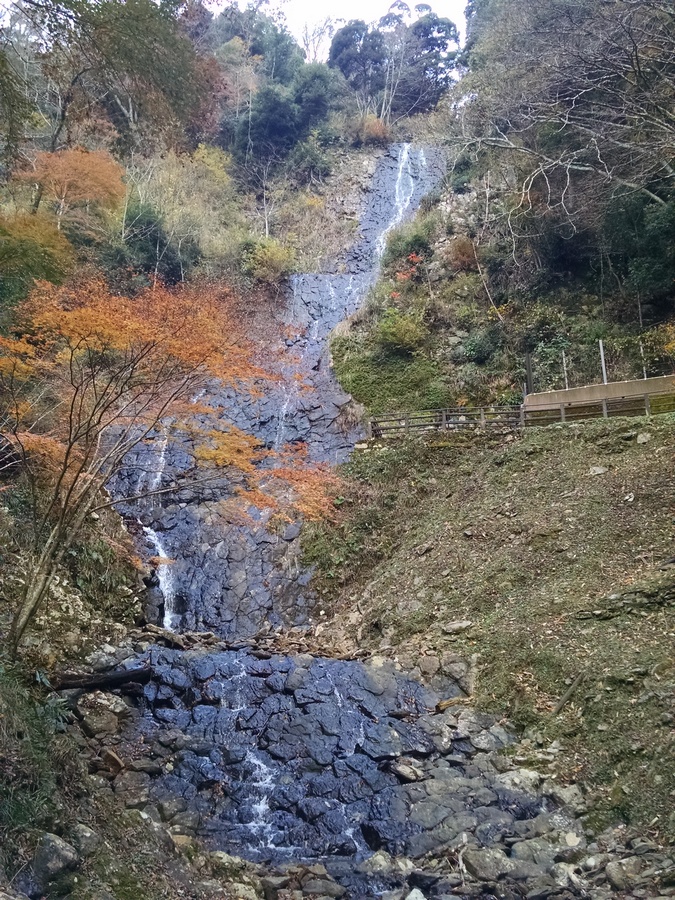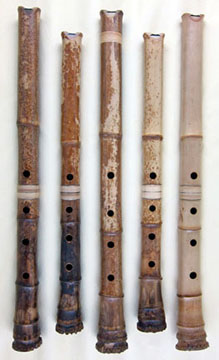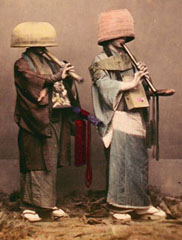Asahi Falls - Izu City

Category: Japan Geography, Shakuhachi History
There are many well known waterfalls on the Izu peninsula. Perhaps the most famous is Joren Falls because of its role in the novel Izu no Odoriko (The Dancing Girl of Izu) by Nobel laureate Yasunari Kawabata.
In Izu City, in the central north of the peninsula, is a waterfall that is far lesser known. However, it is famous among aficionados of the shakuhachi, a Japanese bamboo flute. Let’s explore the history of the shakuhachi and its connection to Asahi Falls.
The shakuhachi is a bamboo flute that is held vertically. Sound is produced by blowing across the top, which is cut at an angle. The instrument is thought to have been brought to Japan from China during the Nara period (710–794). At first, it was played as part of a group of instruments in the classical music of the imperial courts, but eventually fell out of favor in that genre.
The shakuhachi later emerged as an instrument used for meditation by a certain sect of Zen monks, called Komuso. Since that time, the shakuhachi has been associated with Zen meditation practices. Detailed information about shakuhachi history is available at komuso.com, the website of The International Shakuhachi Society.
The komuso priests created a core repertoire of songs that they call the honkyoku (source songs). When a student masters all of these songs, he/she can begin the journey to enlightenment by way of the shakuhachi. One of these 36 honkyoku is called taki ochi no kyoku (falling water song), and was apparently inspired by and composed at Asahi Falls in Izu City. Long ago, a temple of the Komuso sect was located near the falls, and the song’s composer must have practiced there for a time.
In addition to its connection to shakuhachi lore, Asahi Falls is a unique geological feature of Izu due to the tiered shape of the falls. Because of its connection to culture, history, and the unique geological character of Izu, I highly recommend a visit to Asahi Falls.



